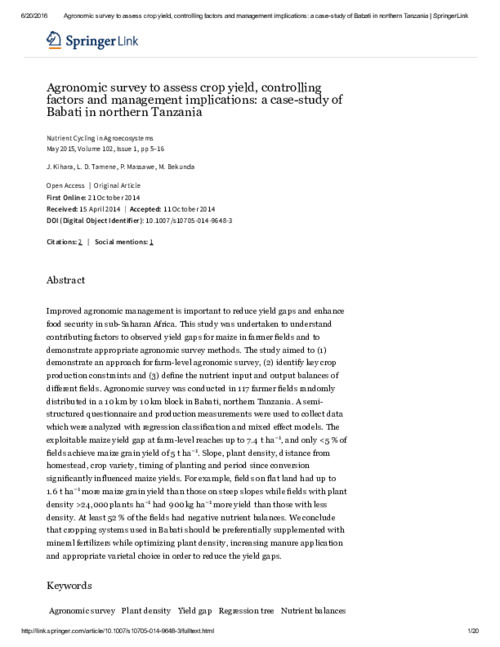Agronomic survey to assess crop yield, controlling factors and management implications: a casestudy of Babati in northern Tanzania
Abstract
Improved agronomic management is important to reduce yield gaps and enhance
food security in subSaharan
Africa. This study was undertaken to understand
contributing factors to observed yield gaps for maize in farmer fields and to
demonstrate appropriate agronomic survey methods. The study aimed to (1)
demonstrate an approach for farmlevel
agronomic survey, (2) identify key crop
production constraints and (3) define the nutrient input and output balances of
different fields. Agronomic survey was conducted in 117 farmer fields randomly
distributed in a 10 km by 10 km block in Babati, northern Tanzania. A semistructured
questionnaire and production measurements were used to collect data
which were analyzed with regression classification and mixed effect models. The
exploitable maize yield gap at farmlevel
reaches up to 7.4 t ha , and only 24,000 plants ha had 900 kg ha more yield than those with less
density. At least 52 % of the fields had negative nutrient balances. We conclude
that cropping systems used in Babati should be preferentially supplemented with
mineral fertilizers while optimizing plant density, increasing manure application
and appropriate varietal choice in order to reduce the yield gaps

